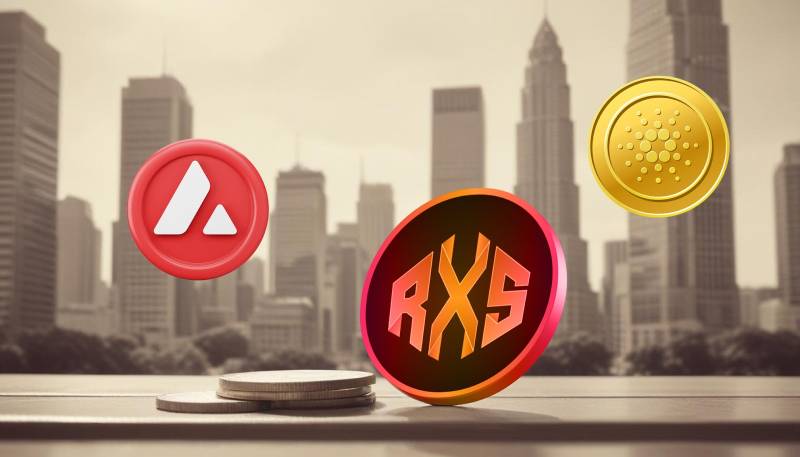 |
|
 |
|
 |
|
 |
|
 |
|
 |
|
 |
|
 |
|
 |
|
 |
|
 |
|
 |
|
 |
|
 |
|
 |
|
Cryptocurrency News Articles
Montana House Rejects Bill to Invest Public Funds in Cryptocurrency and Precious Metals
Feb 24, 2025 at 08:39 pm
ouse of Representatives has voted down a proposal that would have allowed the state to invest public funds in cryptocurrency and precious metals.
The Montana House of Representatives has voted down a proposal that would have permitted the state to invest public funds in cryptocurrency and precious metals, a move that aligns with similar decisions in other states.
House Bill 429, which failed in a 41-59 vote on Wednesday, aimed to create a special revenue account allowing investments of up to $750 million in digital assets and precious metals, such as gold, silver, platinum, and palladium.
The bill, introduced earlier this month by Republican Representative Curtis Schomer, was designed to include cryptocurrencies with market capitalizations above $750 billion. Currently, Bitcoin is the only digital asset meeting this threshold, with a market value of $1.8 trillion.
The bill’s defeat came despite arguments from supporters that it could help diversify the state’s investment portfolio and potentially deliver higher returns than traditional bond investments.
“We are talking about maximizing the return on taxpayer money,” said Republican Representative Lee Demming, advocating for the proposal during the House Floor Session. “We should be pursuing every legal avenue to ensure that we are getting the best possible return on taxpayer money, and this bill does just that.”
However, the opposition voiced strong concerns about the risks involved.
“We have a responsibility to protect taxpayer money,” said Democratic State Representative Steven Kelly during the session. “These types of investments are way too risky.”
State Representative Bill Mercer expressed particular concern about giving Montana’s Board of Investments discretion to invest in cryptocurrencies and non-fungible tokens, stating firmly, “I did not come here to do that.”
Other States
Montana’s decision aligns with similar outcomes in other states. North Dakota, Wyoming, and Pennsylvania have all previously rejected comparable Bitcoin reserve proposals.
However, the picture varies considerably across the United States. According to Bitcoin Reserve Tracker data, approximately 19 state proposals remain under consideration.
These include initiatives in Arizona, Illinois, Kentucky, Maryland, Oklahoma, New Hampshire, and Texas, among others.
In Arizona, progress continues as the Senate Finance Committee has advanced legislation that would permit up to 10% of public funds, including pension systems, to be invested in cryptocurrency. The bill has moved to the Senate Rules Committee for further examination.
Texas is pursuing a dual approach, with two separate bills under consideration. One would allow up to 1% of the general revenue fund to be allocated to Bitcoin, while the other focuses on Bitcoin donations and cryptocurrency payment conversions.
Meanwhile, Utah has emerged as a leader in this legislative movement. The state’s Blockchain and Digital Innovation Amendments bill, which would allow the state treasurer to allocate up to 5% of public funds to digital assets, has passed through the Senate Revenue and Taxation Committee.
The bill, which had its first hearing on February 16, would also establish a working group to study the feasibility of accepting cryptocurrency for state payments.
The legislative push to include Bitcoin in state reserves began in 2021 and has since gained momentum, with several states introducing bills to allocate a portion of their general funds or treasury holdings to the leading cryptocurrency.
The movement toward cryptocurrency adoption in state reserves extends beyond U.S. borders. Several countries, including Switzerland, Brazil, Japan, and Russia, are actively exploring the integration of Bitcoin into their national reserve strategies.
During debates on House Bill 429, Representative Steve Fitzpatrick pointed out that the state’s investment board “has a lot of money sitting in the bank” that could be put to better use, such as in infrastructure or education.
“This bill would allow the board to put that money to work,” said Fitzpatrick.
Similarly, bill sponsor Schomer warned that continuing to invest solely in bonds could result in lost purchasing power, arguing that the bill would provide the state with a valuable tool to enhance its investment strategy.
While Montana’s House Bill 429 is now effectively dead, any future Bitcoin reserve legislation would need to be reintroduced into the state’s legislature.
The bill’s journey through the legislative process included initial success in the business and labor committee, where it passed in a 12-8 vote on February 19, with Republican support and Democratic opposition.
For states still considering similar legislation, the debate continues to center around balancing potential investment returns with the responsibility to safeguard public funds. Each state’s approach reflects local priorities and risk tolerance levels in managing public resources.
Disclaimer:info@kdj.com
The information provided is not trading advice. kdj.com does not assume any responsibility for any investments made based on the information provided in this article. Cryptocurrencies are highly volatile and it is highly recommended that you invest with caution after thorough research!
If you believe that the content used on this website infringes your copyright, please contact us immediately (info@kdj.com) and we will delete it promptly.
-

- Top 3 Altcoins To Buy As Avalanche (AVAX) And Cardano (ADA) ETPs Enter The Market
- Feb 25, 2025 at 03:30 am
- The news is dominated by the recent introduction of Exchange-Traded Products (ETPs) for Avalanche and Cardano. These innovations alone encourage institutional participation. However, other investors focus on three altcoins that could boost their portfolios: Rexas Finance, Shiba Inu, and TRON.
-

-

-

- MicroStrategy Keeps Accumulating Bitcoin (BTC) and Nears 500,000 BTC Threshold
- Feb 25, 2025 at 03:30 am
- Strategy is once again making headlines with a new bitcoin acquisition. With this latest operation, the company surpasses 499,000 BTC. This strengthens its position among the leading bitcoin holders in the world!
-

-

-

-

-























































